Our List of 30 Free Auto Liker Websites to Use for Facebook
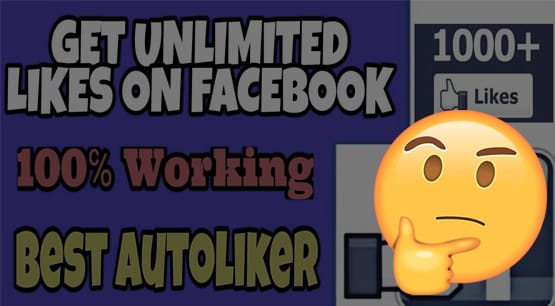
Diving again into the world of gray-hat marketing, let’s talk about Facebook-based auto-liker apps.
Auto-likers are pieces of software, either run on your computer or on the cloud (which is just someone else’s computer). Their entire purpose is to drive a bunch of likes to posts you choose, so you look like you have a lot more engagement than you actually do.
Of course, driving engagement via software is at best a gray-hat technique, and is usually a black-hat technique. It’s the kind of thing that should be used sparingly, if at all. I have a few disclaimers about this at the end of this post, so feel free to skip down there if you’re concerned.
The Purpose of Likers
Auto-likers on Facebook and other social networks serve one purpose and one purpose only: boosting the number of likes on your posts you make on that social network.
That’s it! Some of them might have additional features, like comments or shares or some additional social metric, but for the most part they just provide a like.
The idea is that a like, or more specifically, a volume of likes will make a post more attractive to both your audience and to the Facebook algorithm. A post with 10 likes indicates that it has some minor interest. A post with 1,000 likes means it’s pretty interesting. More likes encourages more people to like, in a sort of snowball effect. At least, that’s the theory. Check down in the disclaimer for a more accurate worldview.
Free auto-likers for Facebook will get you more likes on your posts, but that’s pretty much it. You can’t rely on them to boost your reach, your other engagement metrics, your website clicks, or your conversions. Feel free to test them out – again after you read the disclaimer – but don’t rely on them. You never know what the consequences may be.
The List of Likers
The list I’ve put together below includes 30 likers that, as of this writing, exist and are functional. One thing you discover with techniques and tools like these is that they don’t always stick around for very long. If any of the apps below no longer exist, let me know and I’ll look into removing them or replacing them. It’s a tricky subject to follow, and there may be significant turnover, so we’ll see how it goes.
I’ve tried to focus on auto-likers that are both free and reasonably popular, for two reasons. First, I don’t want you to be paying money for something that has a decent chance of getting your account banned. Second, the more popular the app is, the more likes it can provide, because of its larger audience. Still, use your own best judgment.
In general, auto-likers require that your profile be public and that any posts you want liked also be public. Some of them have other requirements as well. I’ve tried to note them when they’re relevant. Unless otherwise mentioned, all of these apps require you to generate a Facebook authorization token to allow the app to access and use your account, generally to become part of the like swarm.
- MachineLiker.com – A free liker with active development to fix issues when Facebook makes a change. They require an account be 18+, meaning they have no content filter restrictions. Has a premium version, but does not mention costs or features for it, if it’s even available.
- WefBee.com – Similar to the above. It also includes auto-followers, auto-friends, auto-group-posting, and auto-page-posting, if you want to turn your account into a total spam engine. Is affiliated with BuyFok for paid options.
- Jioliker.com – A simple project by a small Indian freelancer, this app looks to have a 150-like limit, which is small potatoes for larger brands that might be looking to boost metrics.
- BugsLiker.net – This app is available on Android as well as traditional PCs. They give you 300 likes immediately, and you can pay for more, up to a claimed 50,000. Who knows if they can actually deliver such volumes, though.
- AutoLikesFree.net – A Pakistan-based auto-liker without much in the way of unique features.
- M-Autoliker.com – Home of Himzi Autolike, this one will get you between 30 and 500 likes on each post. They claim not to spam your account, and they are “loved by millions of people”, though I doubt that’s actually true. They can provide reactions other than likes as well.
- FBAutoReactions.com – One of the more recent apps, since it’s branded with reactions rather than just likes. You need to enable followers to your account to get full use out of the app.
- Hublaa.me – Another reaction-based auto-liker, this is currently on its third major versions. It handles all types of reactions and gives you up to 350 likes for free, with a potential for up to 15,000 per post if you want to go all out. They claim geo-targeted likes, though I imagine this is handled via proxies rather than legitimate accounts.
- LikesGroup.com – This one has apps for iOS and Android, and will give you up to 200 likes per post, presumably with the option to pay for more.
- FB-Autolikers.com – This one at least mentions that it’s an exchange, rather than hiding the fact that you become part of the botnet. They also claim not to use your account for shares, though likes often have the same effect in the news feed. Amusingly, they run the link to get your authentication token through a link monetizer.
- FBSearchIndex.com – This one does up to 125 likes per post, up to 35 new fans for a page, and up to 105 followers for a normal account.
- FreeLiker.net – In addition to likes, this one will give you comments as well as some other features. They will post in groups, post on pages, and give you followers.
- Autolike.biz – No, I’m not affiliated with these guys in any way. They do up to 350 likes and 50 other reactions, with a limit of one post every 15 minutes.
- Auto Liker for Facebook 1.0 on Softpedia – This one is actually an app that you download. Usually such apps are paid, so this one being free is interesting. It’s also an exe, so do all the usual virus scans and sandboxing you want.
- Apental.org – Not an organization, just using the org domain. This one is an app for Android, you download an APK directly. Could be mining crypto in the background for all I know.
- CrazyLiker.net – There’s nothing to make this one stand out. In fact, even its web design is identical to at least one other in this list. I’m sure they get some kind of affiliate payout.
- FollowingLike.com – Again, identical to another entry on this list. I’m actually wondering if the one app is “sold” by multiple people, or just rebranded to make each one seem more active than it is.
- RockySite.net – Not a fan page for the Rocky movies, this is a pretty typical liker just like all the others. They claim to have been in operation since 2013, though their domain has only existed since 2015.
- Like4Like.org – This one handles all kinds of social networks, and has the added benefit of having stolen someone’s deviantart project making human versions of the social networks for their marketing.
- FollowLike.net – Not to be confused with number 17, this one is pretty much the same as all the rest on this list.
- KPLiker.net – This one has an android app as well, which is somehow still on the actual Google Play store, rather than some third party “storefront” that isn’t really a storefront.
- MG-likers.com – Despite the plural in the domain, there’s only one liker here. Works just like the rest of them.
- PCLiker.com – This one has some weird engrish claiming to get 10,000 likes per day, though who knows what they’re actually talking about. It also has a huge block of keywords for some reason. Someone looking for car donations is really gonna like this site, huh?
- ABLiker.com – This one has anti-adblock filters, but ironically those can just be adblocked, so the joke is on them.
- Cyberlikes.com – Similar web design to a bunch of others on the list, it has affiliated tools for Twitter, Instagram, and an Android app.
- GetFBAutoLiker.com – Another very similar design, so much so that I’m starting to wonder if I’m duplicating entries here.
- RoyalLiker.net – Seriously, click through all of these; there’s only like 14 unique designs between them. It’s hilariously transparent.
- Official-Liker.net – Official in what way, guys? Who officiated this?
- Likeeer.com – The extra Es are a sign of true noble heritage.
- Liekr App on APKPure – Another Android APK you can download if you want to make your phone part of a botnet.
As I mentioned all of these work as of the time of writing. Whether or not any of them will work a month or a year from now remains to be seen.
Liker Disclaimer
I said I would do a disclaimer, and here it is. Auto-likers for Facebook and other social networks are generally not safe. They might claim that they’re safe, but then, gun owners claim guns are safe too.
First of all, auto-likers are generally providing fake metrics to your posts. The likes you get boost that little like number beneath the post, but that’s it. They don’t translate into better reach or engagement, because the accounts doing the liking aren’t going to take any other action.
We talk a lot about how engagement boosts reach, but an auto-liker is not the way to go about it. First of all, better engagement means better future reach with the people who engaged. If the “people” who engaged with your post are fake accounts, it doesn’t matter if your posts are visible to them, they aren’t’ going to take any action you aren’t directing them to take.
Secondly, Facebook recently changed their algorithm to favor “meaningful engagement” which generally means comments and shares, not just likes. Likes are being gradually devalued. The likes you’re getting from auto-likers aren’t going to have that big an effect on your posts anymore.
Next, many auto-likers require you to authorize an app on your account. This essentially makes you part of a botnet. You’re handing over the keys to your account in exchange for an influx of likes.
What did you think the payment would be? You don’t need an app authorized for someone else to like your posts, so that app needs to be doing something. Generally, it’s just making you one more account in the swarm. When you tell an app to like your post, and get 500 likes, all of those likes come from other pages. When someone else using that app tells the app to give THEM 500 likes, your account could very well be one of those 500.
What this means is you’re going to be liking a whole lot of pages you don’t care about, and a lot of those pages are going to be completely irrelevant to your account. They might be foreign, they might be spam, they might be malicious. You have no control over it.
If this happens, you’re very likely to eat a temporary ban from Facebook. The temporary ban means you can’t post in groups, you can’t comment, you can’t like photos or posts, and you’re limited in other actions you can take.
If you continue with the actions that earned you a temporary ban, there’s a chance that ban can be upgraded. You might lose access to the advertising system, or you might even find your page – or your account as a whole – banned entirely.
Now remember that Facebook links Page accounts to Profiles. All of your business pages are attached to your personal profile. If you’re auto-liking things, it’s not your business page doing it, it’s your personal profile. Your personal profile, which is now sharing all of this terrible content with your friends and family. Your personal profile, which now has a feed full of spam and garbage, missing critical posts from friends and family. Your best friend is getting engaged? Your cousin had a baby? You missed the announcements, because you’re too busy trying to get 100 more likes on your business.
Then you have to consider whether the auto-liker is charging you money on top of using your account for nefarious purposes. I know I made this post aimed at free auto-likers, but there are plenty of paid apps out there that do the same thing, but can also open you up to credit card fraud. Even if they don’t steal your card information, they’re charging you for the app, and in some ways that might as well be fraud.
At the end of the day, even though I’m giving you a list of resources you can check out if you want to experiment with black-hat techniques, I don’t recommend using any of them. Consider this more of a thought experiment, or a method you can use to run a case study, not a legitimate technique for growth.




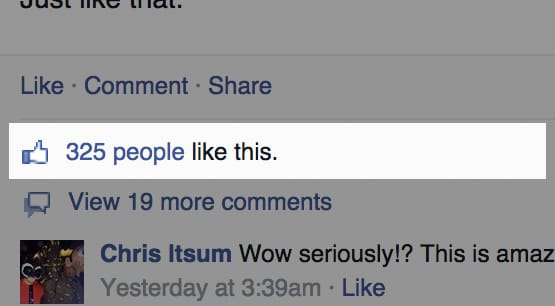
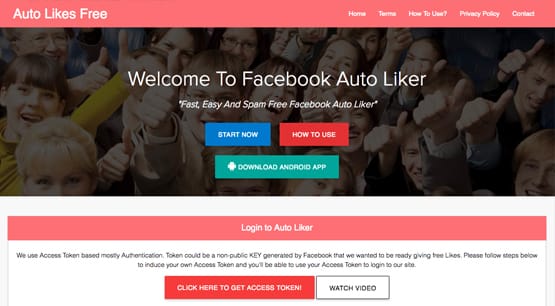
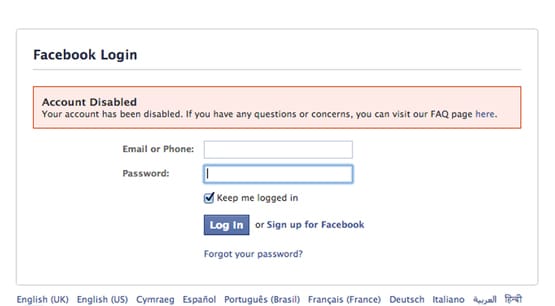
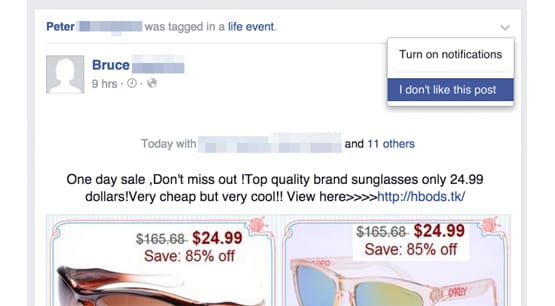
These are awesome! Can I use multiples of them simultaneously? Or will that cause issues?